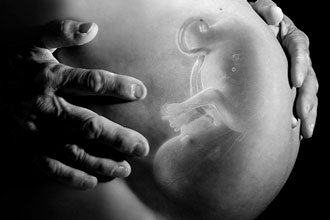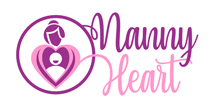Music moves fetuses.

Imagine that you are pregnant and in that period you learn to play the flute or any other instrument, and you enjoy it so much that even your baby begins to move.
This is not exaggeration, even just reading something inside our body and mind happens, which no longer has a turn and is an improvement in your heart, in your neural system, in your life.
Music moves fetuses, because it moves them:
Studies show that fetuses hear and respond to musical sounds received vaginally at 16 weeks' gestation.
On the other hand, Mozart, Mickey Mouse, Queen or the singer Adele, singing a cappella, have managed to awaken from their lethargy a hundred fetuses who were sleeping peacefully in the womb of their respective mothers.
Music is a universal language that crosses borders, but that between those borders was the abdominal wall and that a melodic sound could penetrate the almost soundless maternal uterus to stimulate a fetus at four months of pregnancy is the novelty that a study brings presented by researchers from the Institut Marquès of gynecology and obstetrics of Barcelona.
And doesn't every mother or father want their child to reach their full potential without losing their individuality?
We are all unique and we have a transforming energy, the instruments are precisely that, as they are called, here the artists are the ones who give sound or value, we move, listen, understand and feel, each note, each score, each hit, each sound high or low, depending on the vibration; The soul can be another instrument, your child's instrument fills with magic, even before its fertilization.
Music moves fetuses, we are musical energy:
At an early age it can be introduced in the form of a game relating music and movement and around the age of 5 children can begin to use the flute, for example, ideal as a first instrument, since it does not weigh, it is manageable at the time to touch, it is easy to transport and easy to clean and maintain.
Music moves fetuses, fills them with love:
An article published in 'Frontiers in Neuroscience' in February this year and led by Artur Jaschke, from the Free University of Amsterdam, concluded that reasoning based on language, short-term memory and planning are some of the skills cognitive skills that increase when children take music classes, and this leads to better academic performance.
Even another document, this time from Professor Arthur J. Reynolds, from the University of Minnesota Institute of Child Development, maintains that 25-year-olds who participated in musical stimulation programs during early education receive higher income as adults, They present a high level of academic preparation and higher socioeconomic status than those who did not receive this stimulus during preschool education.
In addition, the study says, they are less prone to addiction or crime. That is, children who have participated in preschool programs with multimodal musical stimulation during early childhood full time show a better quality of life in adulthood.
And does not every mother or father want their child to have a quality life?
For music, for music that appeals to love, tranquility, and respect.
For the children, because one day they will be us.
Thank you for our Divine Music.
Texts: Elsa Castellón - Lic. in communication
Within our childcare services, we care about the health and development of your little one, that is why every day we prepare ourselves to offer a quality service: always taking a human and professional approach by the hand.
"Nanny Heart - The plus of mom your child needs"
- Details
- Hits: 972
© Nanny Heart 2022 - Website design MGF Creative Solutions. - Políticas de cookies y privacidad


